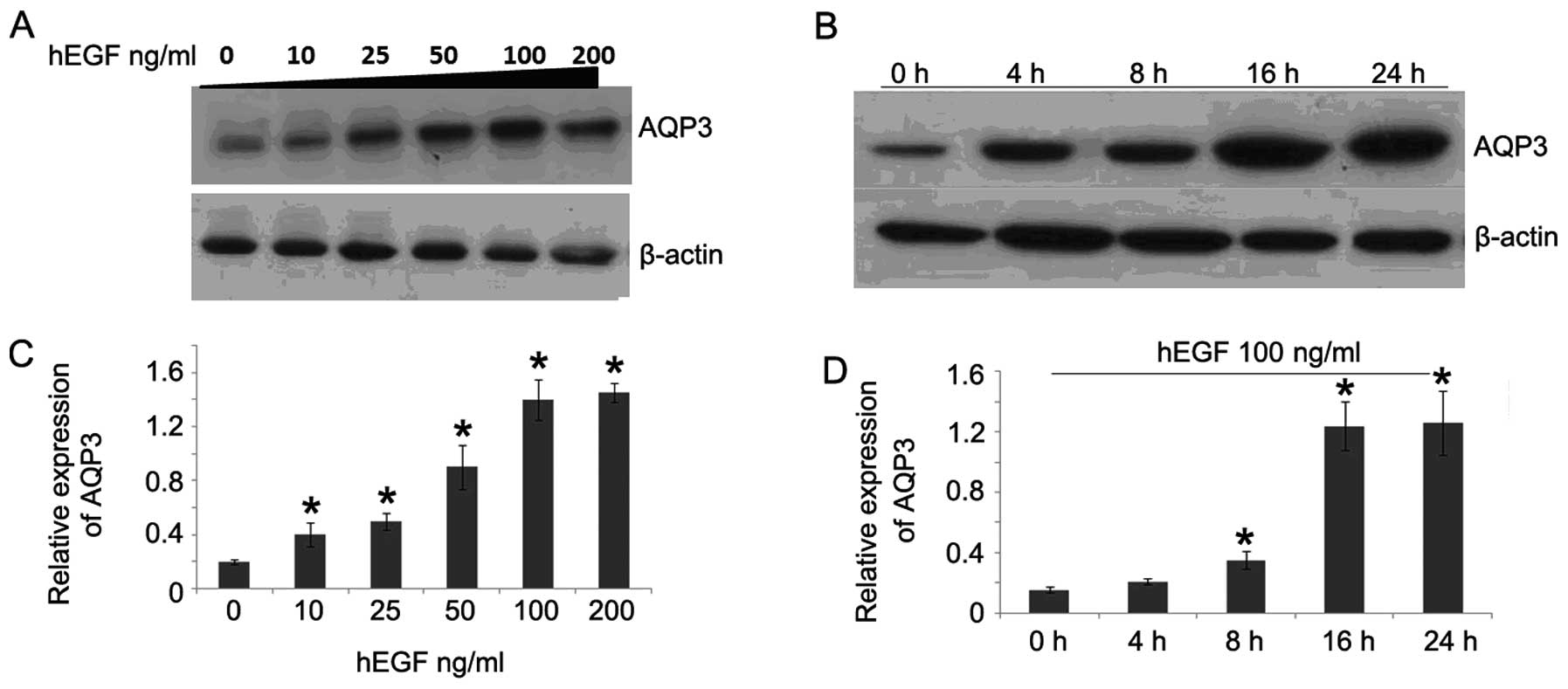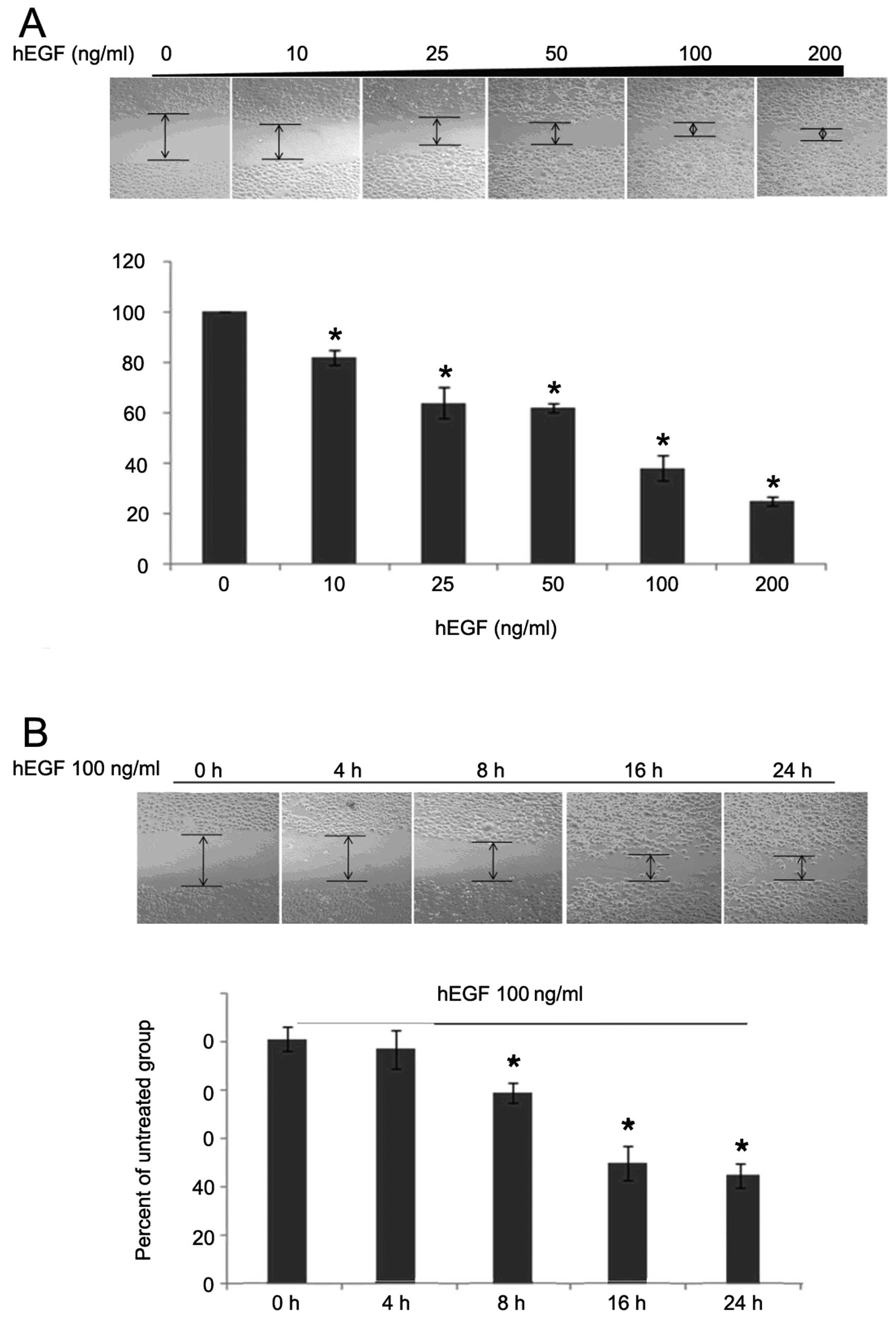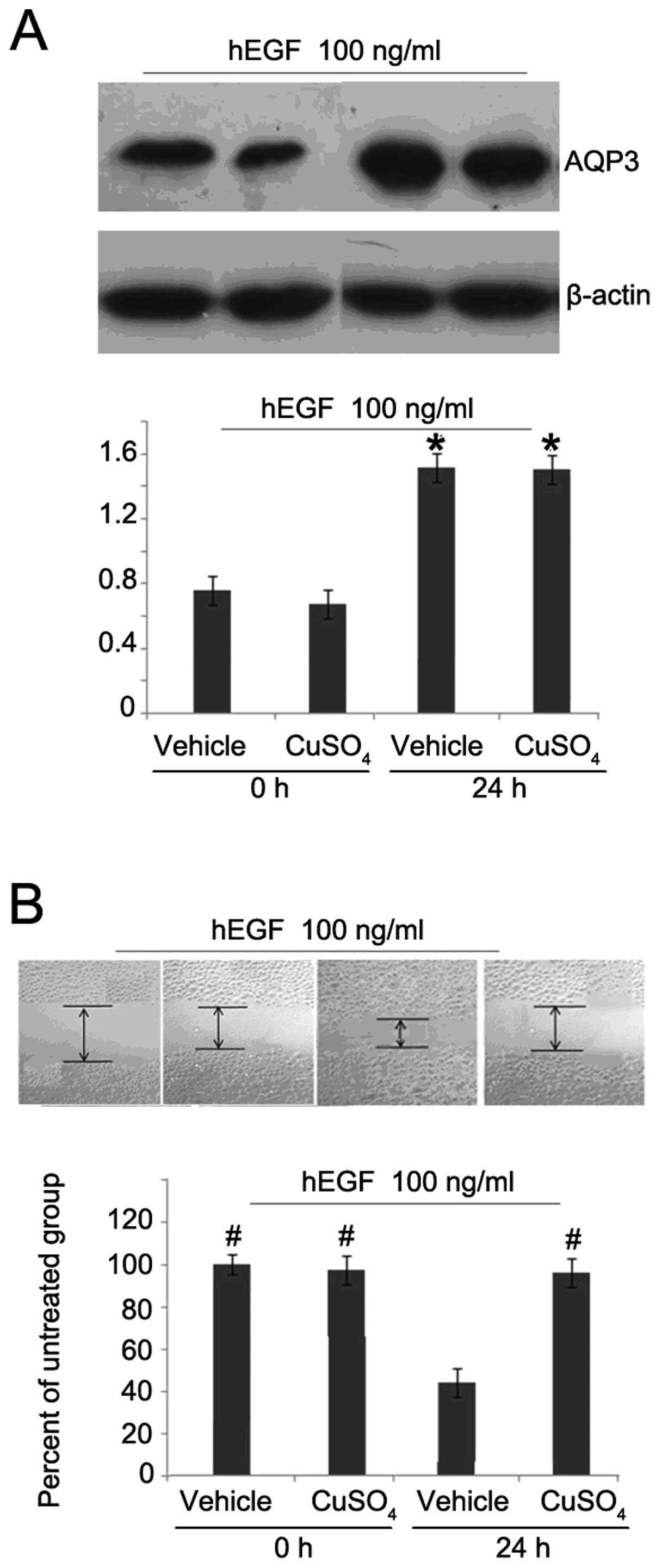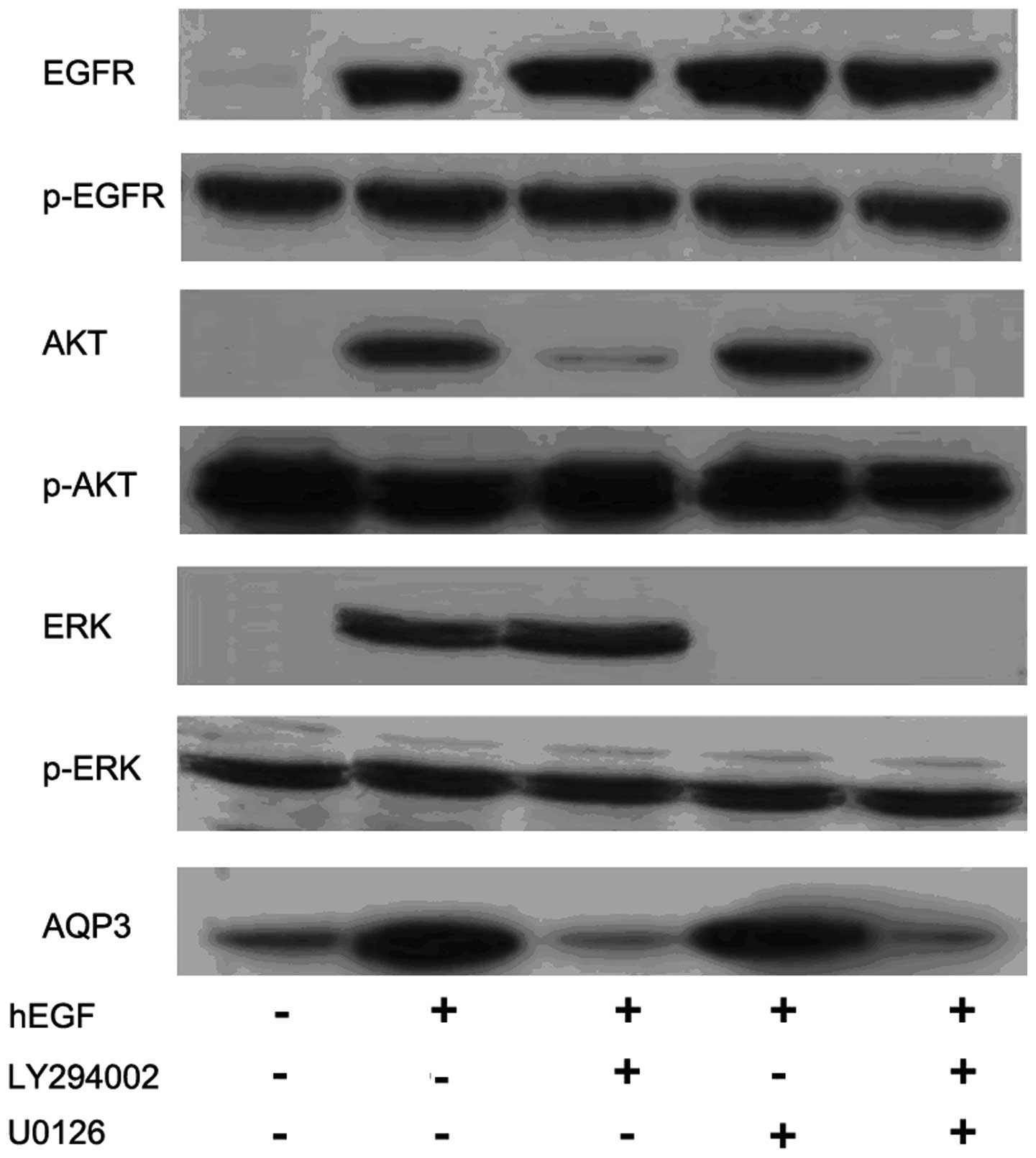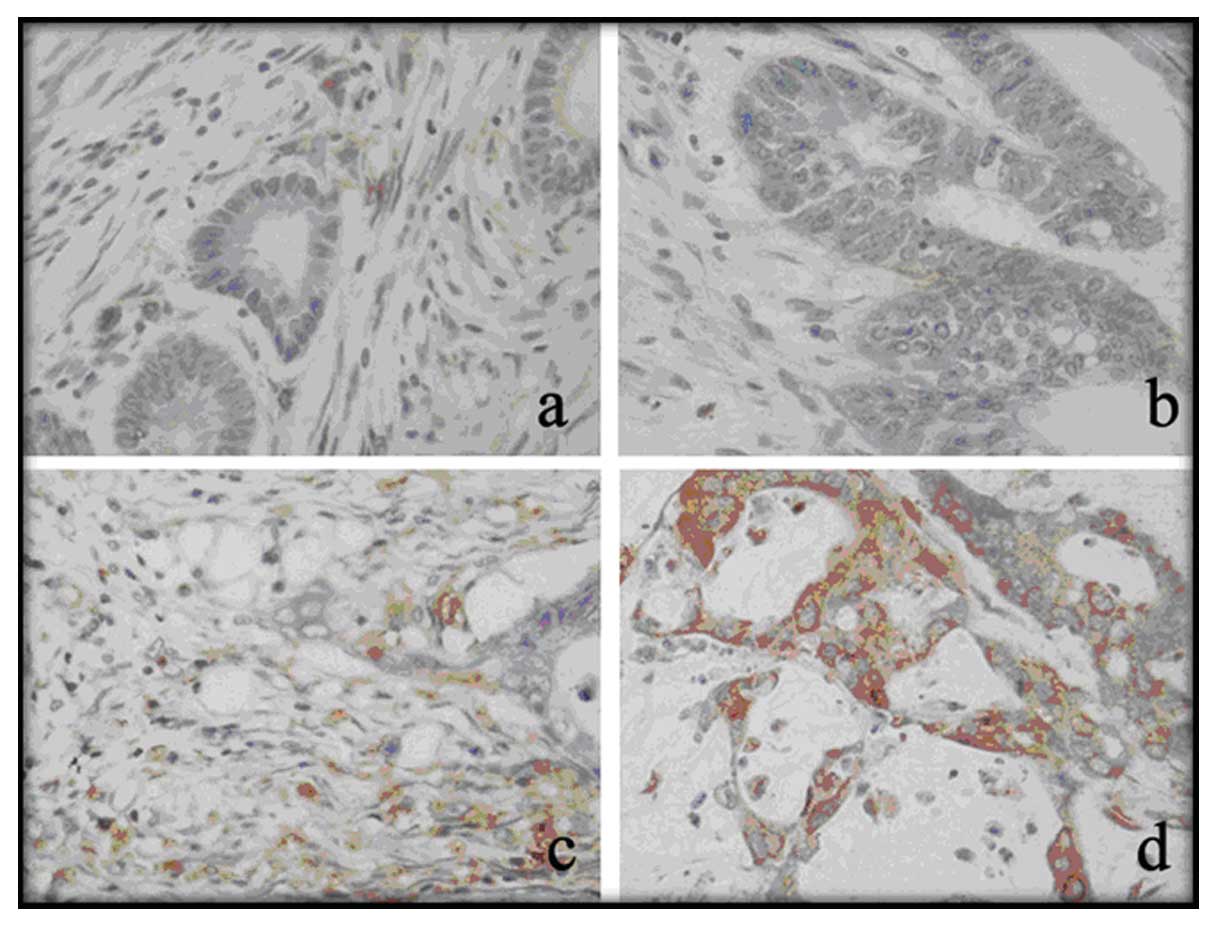|
1
|
Remontet L, Esteve J, Bouvier AM, et al:
Cancer incidence and mortality in France over the period 1978–2000.
Rev Epidemiol Sante Publique. 51:3–30. 2003.
|
|
2
|
Jemal A, Siegel R, Ward E, Murray T, Xu J
and Thun MJ: Cancer statistics, 2007. CA Cancer J Clin. 57:43–66.
2007. View Article : Google Scholar
|
|
3
|
Giuliani F, De Vita F, Colucci G and
Pisconti S: Maintenance therapy in colon cancer. Cancer Treat Rev.
36(Suppl 3): S42–S45. 2010. View Article : Google Scholar
|
|
4
|
Agre P: The aquaporin water channels. Proc
Am Thorac Soc. 3:5–13. 2006. View Article : Google Scholar
|
|
5
|
Magni F, Sarto C, Ticozzi D, et al:
Proteomic knowledge of human aquaporins. Proteomics. 6:5637–5649.
2006. View Article : Google Scholar : PubMed/NCBI
|
|
6
|
Hara-Chikuma M and Verkman AS: Aquaporin-3
facilitates epidermal cell migration and proliferation during wound
healing. J Mol Med. 86:221–231. 2008. View Article : Google Scholar : PubMed/NCBI
|
|
7
|
Nakahigashi K, Kabashima K, Ikoma A,
Verkman AS, Miyachi Y and Hara-Chikuma M: Upregulation of
aquaporin-3 is involved in keratinocyte proliferation and epidermal
hyperplasia. J Invest Dermatol. 131:865–873. 2011. View Article : Google Scholar : PubMed/NCBI
|
|
8
|
Huang Y, Zhu Z, Sun M, et al: Critical
role of aquaporin-3 in the human epidermal growth factor-induced
migration and proliferation in the human gastric adenocarcinoma
cells. Cancer Biol Ther. 9:1000–1007. 2010. View Article : Google Scholar : PubMed/NCBI
|
|
9
|
Kusayama M, Wada K, Nagata M, et al:
Critical role of aquaporin 3 on growth of human esophageal and oral
squamous cell carcinoma. Cancer Sci. 102:1128–1136. 2011.
View Article : Google Scholar : PubMed/NCBI
|
|
10
|
Bogenrieder T and Herlyn M: Axis of evil:
molecular mechanisms of cancer metastasis. Oncogene. 22:6524–6536.
2003. View Article : Google Scholar : PubMed/NCBI
|
|
11
|
Fischer H, Stenling R, Rubio C and
Lindblom A: Differential expression of aquaporin 8 in human colonic
epithelial cells and colorectal tumors. BMC Physiol. 1:12001.
View Article : Google Scholar : PubMed/NCBI
|
|
12
|
Ishibashi K, Sasaki S, Saito F, Ikeuchi T
and Marumo F: Structure and chromosomal localization of a human
water channel (AQP3) gene. Genomics. 27:352–354. 1995. View Article : Google Scholar : PubMed/NCBI
|
|
13
|
Hasegawa H, Lian SC, Finkbeiner WE and
Verkman AS: Extrarenal tissue distribution of CHIP28 water channels
by in situ hybridization and antibody staining. Am J Physiol.
266:C893–C903. 1994.PubMed/NCBI
|
|
14
|
Moon C, Soria JC, Jang SJ, et al:
Involvement of aquaporins in colorectal carcinogenesis. Oncogene.
22:6699–6703. 2003. View Article : Google Scholar : PubMed/NCBI
|
|
15
|
Kim M, Yoon S, Lee S, et al: Gremlin-1
induces BMP-independent tumor cell proliferation, migration, and
invasion. PLoS One. 7:e351002012. View Article : Google Scholar : PubMed/NCBI
|
|
16
|
Du J, Cheng B, Zhu X and Ling C:
Ginsenoside Rg1, a novel glucocorticoid receptor agonist of plant
origin, maintains glucocorticoid efficacy with reduced side
effects. J Immunol. 187:942–950. 2011. View Article : Google Scholar : PubMed/NCBI
|
|
17
|
Fromowitz FB, Viola MV, Chao S, et al: ras
p21 expression in the progression of breast cancer. Hum Pathol.
18:1268–1275. 1987. View Article : Google Scholar : PubMed/NCBI
|
|
18
|
Cohen S and Elliott GA: The stimulation of
epidermal keratinization by a protein isolated from the
submaxillary gland of the mouse. J Invest Dermatol. 40:1–5.
1963.PubMed/NCBI
|
|
19
|
Pryczynicz A, Guzinska-Ustymowicz K,
Kemona A and Czyzewska J: Expression of EGF and EGFR strongly
correlates with metastasis of pancreatic ductal carcinoma.
Anticancer Res. 28:1399–1404. 2008.PubMed/NCBI
|
|
20
|
Jin Y, Li JP, Tang LY, et al: Protein
expression and significance of VEGF, EGFR and MMP-9 in non-small
cell lung carcinomas. Asian Pac J Cancer Prev. 12:1473–1476.
2011.PubMed/NCBI
|
|
21
|
Ji C, Cao C, Lu S, et al: Curcumin
attenuates EGF-induced AQP3 up-regulation and cell migration in
human ovarian cancer cells. Cancer Chemother Pharmacol. 62:857–865.
2008. View Article : Google Scholar : PubMed/NCBI
|
|
22
|
Ciardiello F and Tortora G: A novel
approach in the treatment of cancer: targeting the epidermal growth
factor receptor. Clin Cancer Res. 7:2958–2970. 2001.PubMed/NCBI
|
|
23
|
Wang J, Gui Z, Deng L, et al: c-Met
upregulates aquaporin 3 expression in human gastric carcinoma cells
via the ERK signalling pathway. Cancer Lett. 319:109–117. 2012.
View Article : Google Scholar : PubMed/NCBI
|
|
24
|
Liu YL, Matsuzaki T, Nakazawa T, et al:
Expression of aquaporin 3 (AQP3) in normal and neoplastic lung
tissues. Hum Pathol. 38:171–178. 2007. View Article : Google Scholar : PubMed/NCBI
|
|
25
|
Shen L, Zhu Z, Huang Y, et al: Expression
profile of multiple aquaporins in human gastric carcinoma and its
clinical significance. Biomed Pharmacother. 64:313–318. 2010.
View Article : Google Scholar : PubMed/NCBI
|















